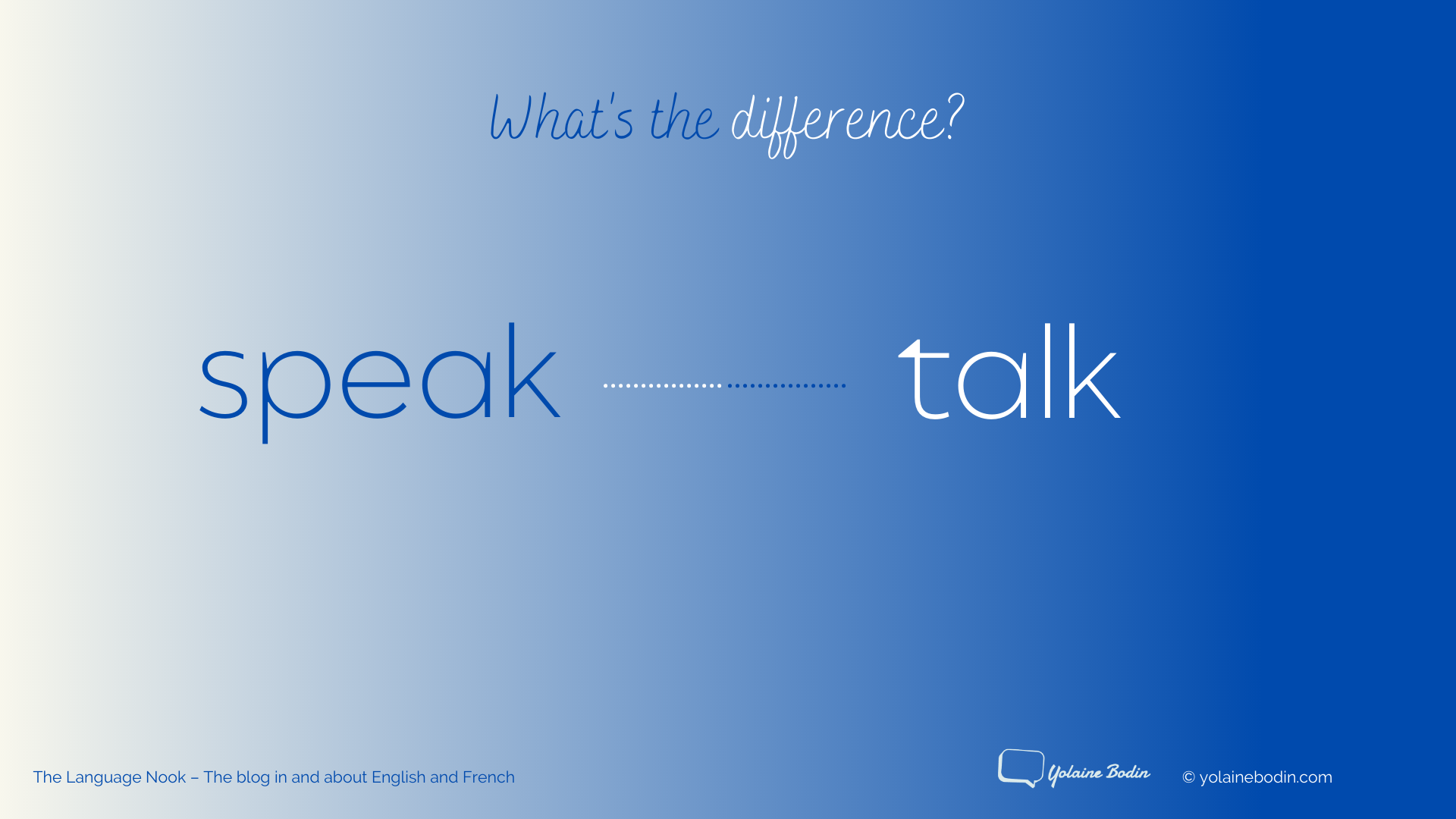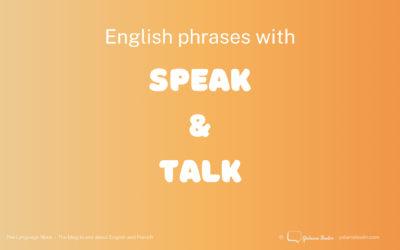The English verbs speak and talk are very similar in meaning, so much so we could say that they are synonyms but they are used differently. So, what is the difference between speak and talk?
In many instances, you can equally use speak or talk. Both verbs mean to say words, to pronounce words. However the difference lies in the context because there is a nuance that makes English speakers choose between speak and talk (although many are not aware of the difference because they do it naturally like we all do in our native language). This means you may need to choose one over the other according to the situation or the context.
When to use speak
Speak is used to talk about the action itself with a focus on the person who pronounces the words, the one who relays the information. It is more polite and is used in more formal situations.
Examples of more formal situations where we would typically prefer to use the verb to speak are business situations and professional relationships: teachers, CEOs, professionals and politicians speak.
Another situation where we use speak is when we refer to languages. This is one situation where we never use the verb talk.
Let’s look at a few examples:
- The prime minister spoke to the Cabinet.
- The manager decided to speak to his employees about the new safety regulations.
- Do you speak good English? What other languages do you speak?
When to use talk
Talk is used to talk about the action with a focus on the speaker but where we also include the listener. Talk conveys the idea that there is a conversation taking place. It is used in less formal, casual situations.
Examples of casual situations are conversations with friends or family members.
Let’s look at a few examples:
- My parents and I often talk about other members of our family.
- When I call my friends, we tend to talk for a really long time.
- Hey guys, what are you talking about?
Memo
Speak Talk more formal situations:
business people, professionalsmore casual situations:
friends, family🗣 →
focus mainly on the speaker:
think of a speech🗣 ⟷👤
focus on both speaker & listener:
think of a conversationlanguages
What prepositions to use with speak and talk
Now that you know how to choose between speak and talk, let’s see what prepositions we can use. Both verbs can be followed by to, with and/or about.
About is the preposition you need to introduce the topic. You can speak or talk about something or someone:
- We talked about last weekend.
- At the conference, they spoke about business ethics.
- She’s talking about her neighbours.
You can speak or talk with or to someone. Again, both to and with have very similar meanings and you can use both equally. Still, there is a slight nuance.
When speak and talk are followed by with, the focus is on something that those involved in the conversation do together:
- Yesterday I talked with a friend for a long time over the phone.
- He needs to speak with his team.
When speak and talk are followed by to, it conveys the idea that it is more a one-way discussion, more one-sided:
- She said she would like to talk to you.
- Did you speak to the boss about the new regulations?
Let’s compare the use of to and with and look at this example:
If parents say they need to talk to their child, it suggests they focus on the fact that they have things to say to their child and they expect their child to listen rather than take part in the discussion.
But if they say they need to talk with their child, then it suggests that they focus on a two-way conversation where they probably expect their child to take an active part in the conversation.
Careful!
Talk is a regular verb. Its past form and the past participle are talked.
Speak is an irregular verb. Its past form is spoke and the past participle is spoken.
Also, as you probably know, speak and talk are also used in a lot of English phrases. You will find examples of phrases with speak and talk here.
Here you are! You now know the difference between the English verbs speak and talk. Congratulations! 🙂
Now if you need, you can also check this other blog post to better understand the difference between say and tell.





0 Comments